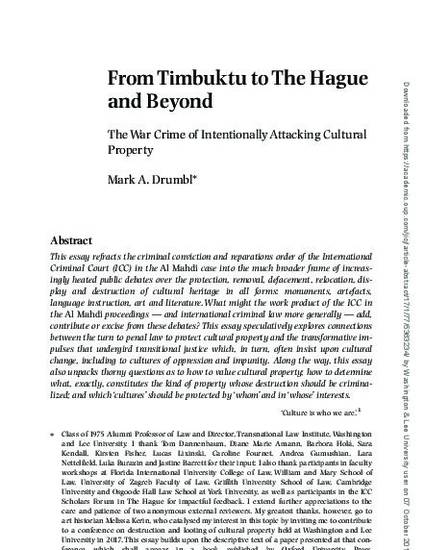
This essay refracts the criminal conviction and reparations order of the International Criminal Court (ICC) in the Al Mahdi case into the much broader frame of increasingly heated public debates over the protection, removal, defacement, relocation, display and destruction of cultural heritage in all forms: monuments, artefacts, language instruction, art and literature. What might the work product of the ICC in the Al Mahdi proceedings -- and international criminal law more generally -- add, contribute or excise from these debates? This essay speculatively explores connections between the turn to penal law to protect cultural property and the transformative impulses that undergird transitional justice which, in turn, often insist upon cultural change, including to cultures of oppression and impunity. Along the way, this essay also unpacks thorny questions as to how to value cultural property; how to determine what, exactly, constitutes the kind of property whose destruction should be criminalized; and which ‘cultures’ should be protected by ‘whom’ and in ‘whose’ interests.
